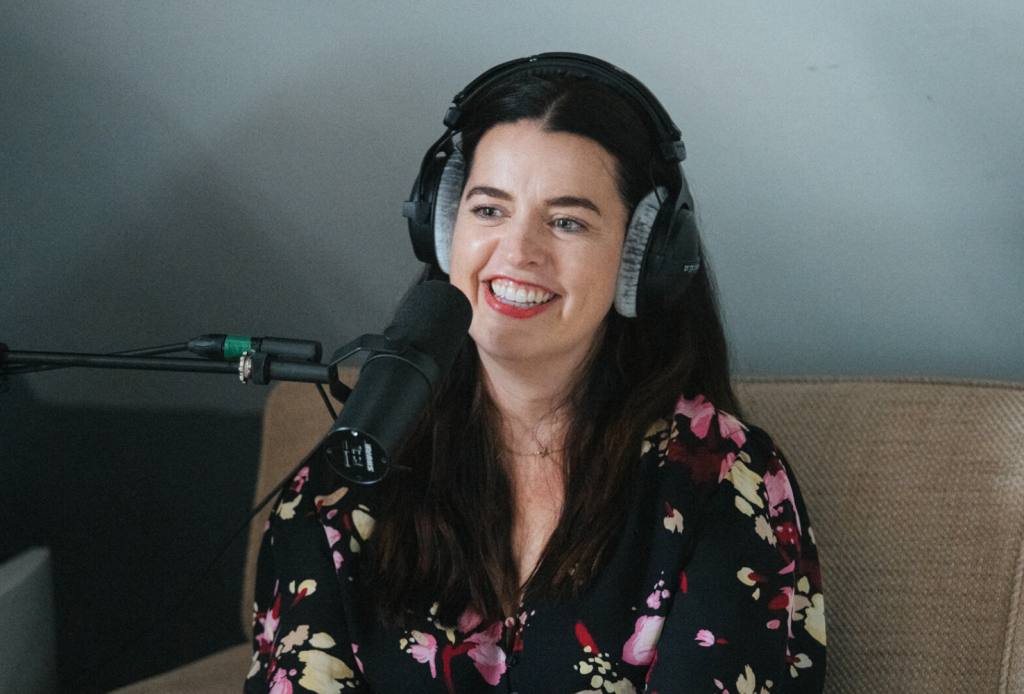Bowler Talks About Her Cancer Battle on 'Armchair Expert'
- In a new interview on hit podcast “Armchair Expert,” New York Times bestselling author Kate Bowler talks about what it was like fighting stage 4 colon cancer at 35 with immunotherapy.
- In a previous interview with SurvivorNet, Bowler spoke on the importance of language when it comes to health battles.
- Colon cancer is screened for via colonoscopy, which looks for polyps small, white growths which can be precancerous in the colon.
In a new interview with Spotify’s hit podcast, “Armchair Expert,” Bowler talks about these health struggles and emotions with hosts Dax Shepard and Monica Padman.
Read MoreIn their emotional and vulnerable interview, Shepard asks Canadian Bowler, "And then you got diagnosed with stage four [colon] cancer, And is it fair to say that that's the primary thing that shook up this whole [worldview], where you had to really question these [religious and spiritual outlooks]?"

Kate’s Colon Cancer Journey
Responding to Shepard, Bowler tells the hosts what it felt like when she faced her health battles of cancer and a joint disorder. "I felt really adrift," says Bowler. "Like I was swimming so hard and the shore was way over there. At first, I had this chronic joint disorder that meant I lost the use of my arms."

Bowler says that at the time she was a student at Duke and working on a major, time-sensitive project, to apply for an open position at the university. In short, her diagnosis couldn’t have come at a worse time.
Related: People V. Cancer: Kate Bowler & The New Movement to Make Human Touch Part of Cancer Care
But the author admirably faced her diagnosis head-on. She says, “I started going to doctors and nobody knew what it was.” Bowler moved back in with her parents and continued to work on her project while using voice dictation, due to the fact that she lost the use of her arms because of her joint condition.
“Then, at 35, I’m diagnosed with stage 4 colon cancer. And I’m supposed to die that year, Bowler says. Bowler had a 30% to 40% chance of survival; she beat her cancer after treating it with immunotherapy via a therapy trial.
Kate Bowler Speaks with SurvivorNet about Pressures Faced During Her Diagnosis
How to Screen for Colon Cancer
Colon cancer is detected via colonoscopy, which looks for polyps small white growths in the colon. Polyps can turn into cancer, and 95% of them are precancerous. When they’re found during a colonoscopy, the polyp is sent to a lab for testing to see if it indicates a risk of the presence of or future development of colon cancer.
Related: Colon Cancer: Overview
While experts don't currently know exactly what causes colon cancer, they do point to certain risk factors. Risk factors for this disease may include one’s diet, smoking tobacco, and drinking alcohol. Having a family history of colorectal cancer can also increase the risk.
People with an average risk of developing colon cancer meaning, no history of colon cancer in the family and no history of Lynch syndrome (an inherited syndrome that increases your colon cancer risk) should begin getting colonoscopies at age 45. People with a family history of colon cancer should begin screening before 45.
How Does a Colon Polyp Turn into Cancer?
Learn more about SurvivorNet's rigorous medical review process.


